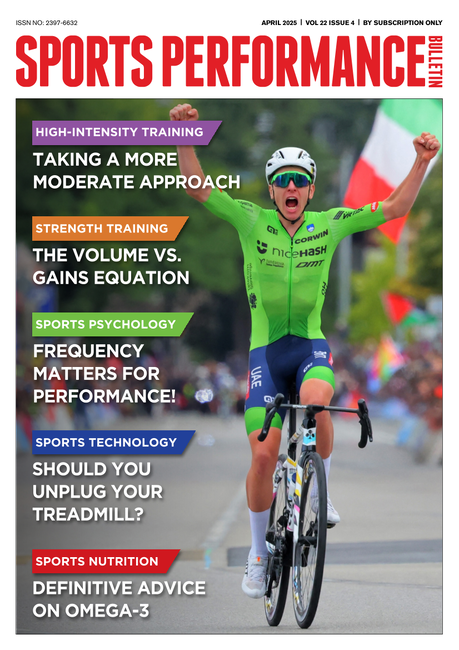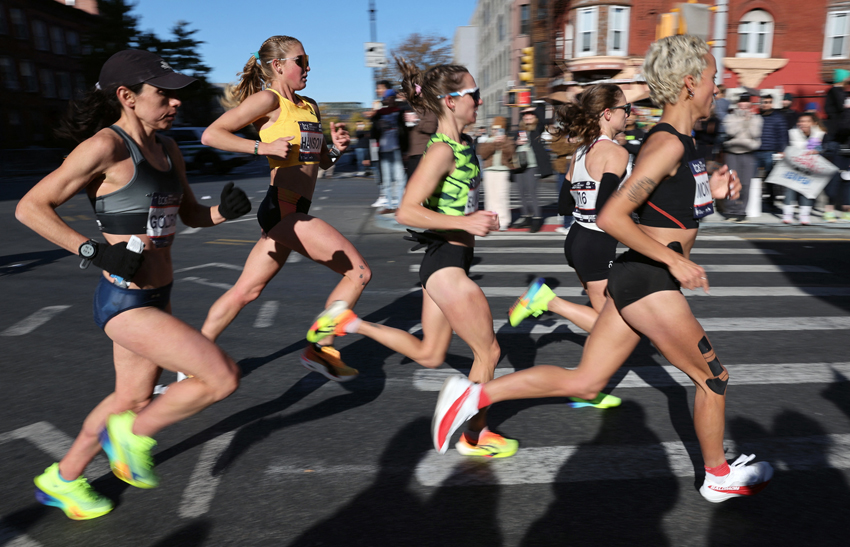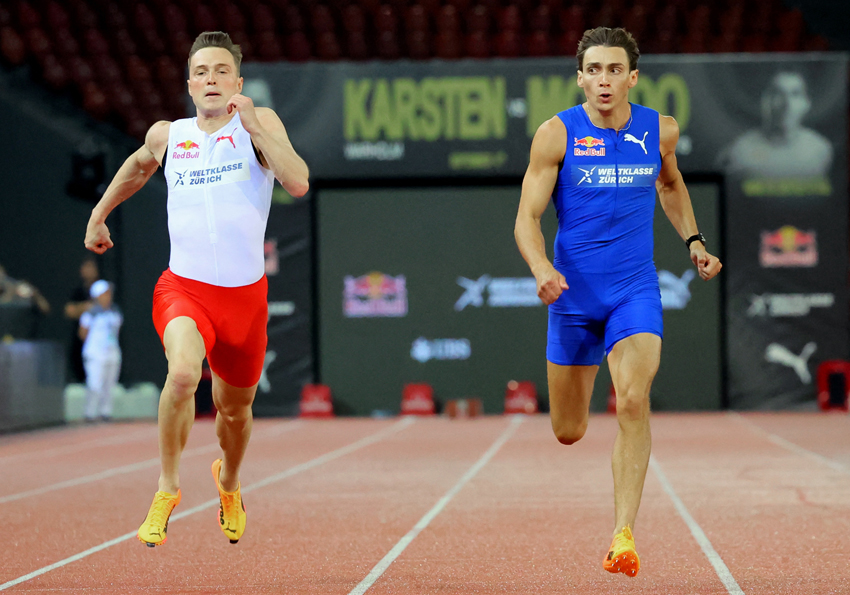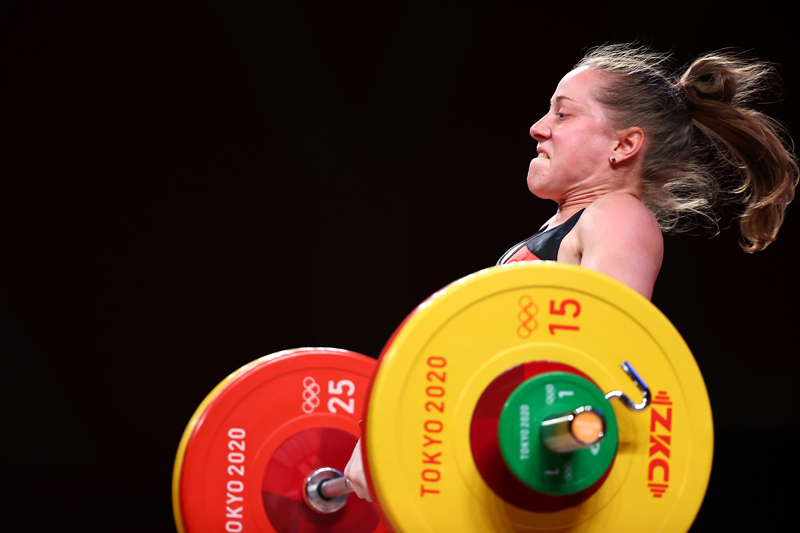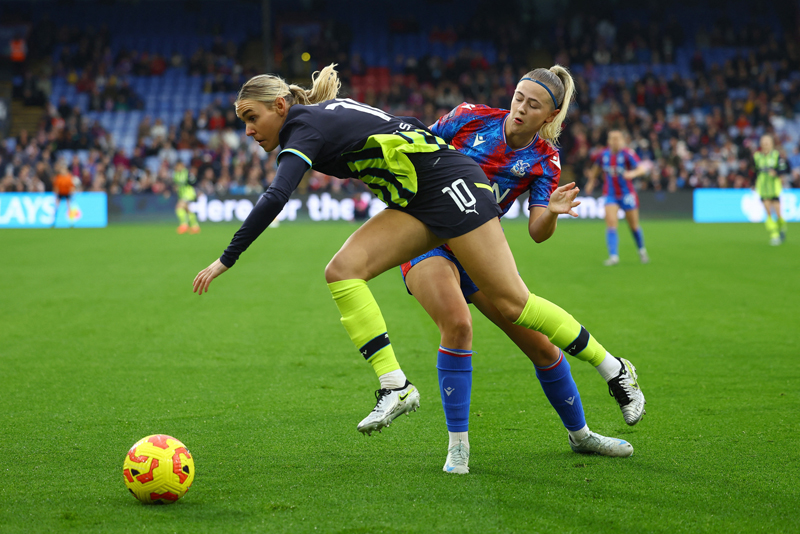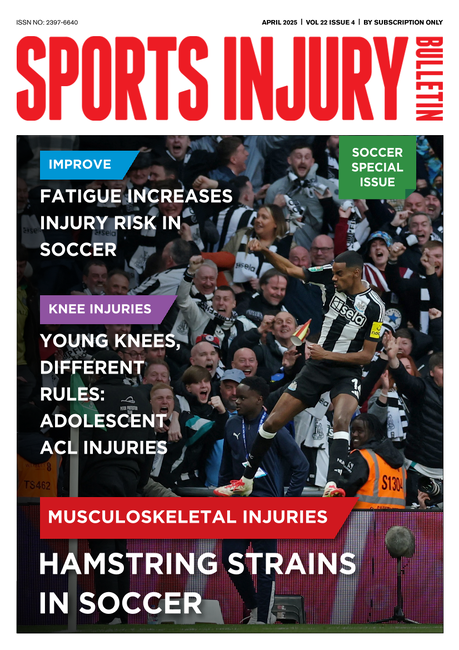Recovery and sleep: why training timing counts
 Andrew Hamilton looks at new research on the relationship of training timing, intensity and sleep quality. What are the implications for training structure and optimising recovery?
Andrew Hamilton looks at new research on the relationship of training timing, intensity and sleep quality. What are the implications for training structure and optimising recovery?
Rapid recovery should be considered an integral and essential part of any training programme. All other things being equal, an athlete who recovers faster recovery will be able to train more frequently and harder, enabling greater fitness gains than an athlete with slower recovery. As all athletes know (or should know!), enhancing recovery from training or racing sessions entails ensuring adequate rest and nutritional replenishment, including fluid for rehydration, carbohydrate for restoring muscle glycogen, and protein for the repair and regeneration of damaged muscle tissue. However, there’s another factor in the equation and that’s sleep.The role of sleep in recovery
In recent years, scientists have established that sleep and sport/exercise performance have a strong relationship, mutually influencing each other, positively or negatively. Get your sleep health right and performance is likely to be enhanced. However broken or insufficient sleep is not good for performance. In terms of physiological recovery, sleep is vital – not least because a number of hormonal responses take place in the lead up to and during sleep.One important hormone relating to athletic recovery is growth hormone. Growth hormone is necessary for body restoration, and plays an important role in muscle growth and repair(1,2) Muscle growth, repair, and bone building are vital for athletic recovery following strenuous training and competition; it has been reported that 95% of the daily production of growth hormone is released from the pituitary gland in the endocrine system during non-rapid eye movement sleep (NREM - ie deep sleep). Therefore NREM sleep is considered the time in which the body actively repairs and restores itself(3,4).
However, the relationship between sleep, recover and athletic performance is two-way. Exercise is a physiological stressor, activating the hormonal systems – in particular those of the hypothalamus, pituitary and adrenal glands. Two hormones are particularly important: testosterone (which is controlled by the hypothalamus) and cortisol (produced and released by the adrenal glands).
The cortisol-testosterone balance
Cortisol is a steroid hormone that regulates a wide range of processes throughout the body, including metabolism and the immune response. In particular, it has a very important role in helping the body respond to physiological stress, which explains why cortisol levels rise following exercise(5). Testosterone is also a steroid hormone, and is associated with physiological responses to exercise. However, unlike cortisol, which is mainly ‘catabolic’ (ie involved in tissue breakdown) in nature, testosterone is an anabolic hormone, stimulating the repair and growth of muscle tissue(6).What’s important to understand is that the balance and timing of anabolic (testosterone) and catabolic (cortisol) hormones are considered essential to muscle adaptation and growth. In terms of timing, scientists have established that cortisol and testosterone both follow a circadian rhythm, and are affected following exercise or sleep deprivation/disturbance (see figure 1)(7). An increase in the secretion of cortisol and changes in the pattern of rhythmic secretion of testosterone can affect the body’s delicate anabolic and catabolic balance.
Figure 1: The interplay between cortisol secretion, daily rhythm and exercise timing

Pink line shows changes in blood cortisol levels from 8.00am to 4.00am the next day with a morning bout of exercise. Green line shows cortisol levels from 8.00pm to 4.00pm the next day with an evening bout of exercise. Notice how the timing of exercise changes the daily rhythm of cortisol concentrations.
Sleep deprivation blues
Given the physiological and biochemical impacts that sleep helps facilitate in the human body, it follows that anything that impairs the length or quality of sleep in an athlete will also be detrimental to maximising the speed of recovery, and therefore subsequent performance – and research has established that this is indeed the case. Sleep deprivation is associated with higher rating of perceived effort (RPE) values, potentially leading to reduced performance, particularly in endurance events(8,9). In short, when you’re sleep deprived, you will feel like you’re working harder to sustain a given workload compared to when sleep amounts have been adequate.Research also suggests that sleep deprivation leads to a higher rate of injury(10), reduces muscle glycogen stores(11) and alters recovery after muscle damage induced by exercise(12). Acute sleep deprivation and chronic sleep restriction also induce alterations in glucose metabolism, with increases in insulin resistance and decreased insulin sensitivity(13). These changes in glucose and insulin metabolism means it becomes harder to regulate and optimise energy levels – both at rest and during exercise.
Training timing and sleep quality
As we’ve established, optimum recovery from training requires adequate sleep quality and quantity – however, sleep quality (and to a lesser extent quantity) is in turn affected by training timing. This raises the intriguing question of how best to time training sessions to minimise physiological stress on the body, and therefore ensure more rapid recovery.When training at weekends/on your days off/while taking a vacation, you can pretty much choose the time of day to train. However, with the constraints of work and family, training very early in the mornings or in the evenings following work are the only options for many of us (unless you can take an extended lunch break). In summer, when the days are long, evening training is an especially appealing alternative for those who need to train outdoors – eg runners, cyclists, rowers etc. But does evening training - and the associated hormonal changes that follow - impact subsequent sleep quality (and therefore recovery) compared to training carried out earlier in the day?
Late vs. early training
One fairly recent US study examined the relationship between sleep quality and time of exercise in order to try and answer this very question(14). As well as the timing, the researchers also looked at the effect of training intensity, which is also a major factor in the rate of recovery. To do this, they looked at the sleeping and exercise habits of 1000 adults aged 23-60 years from a wide variety of US geographical regions. In particular, the researchers asked the subjects to report their sleep quality, total sleep time, sleep latency (how long it took them to fall asleep) and how often they woke without feeling refreshed in the morning. The timing of that day’s exercise was also recorded and split into one of three categories:- More than 8 hours before bedtime
- Between 4-8 hours before bedtime
- Less than 4 hour before bedtime
Intensity matters when training late
These findings tie in somewhat with research carried out the previous year by Chinese researchers who examined the effect of evening exercise in 5086 students(15) They found that moderate-intensity exercise such as steady-state jogging and cycling performed late in the evening had no negative impact on the students’ sleep quality. Also, the duration of the exercise didn’t seem to matter. However, unlike the US study above, very intense exercise performed later in the evening DID seem to harm sleep quality. Another caveat to the US study is that while the subjects were exercising regularly, they were not classed as athletes. This is important; small amounts of low-moderate intensity exercise do not produce the same kind of hormonal impacts that higher exercise volumes and intensities (more typically used by athletes in training) do.Training timing and sleep quality in endurance athletes
When it comes to recommendations for athletes in harder training, newly published research by Spanish scientists makes for very informative reading. Rather than investigating subjects involved in recreational fitness, the researchers in this study recruited 14 ultra-endurance runners, whose training volumes and intensities are probably much more representative of most endurance athletes who train seriously.In this study, the scientists analysed the effect of the intensity and the hour of the training session on sleep quality and ‘cardiac autonomic activity’ in amateur ultra-endurance athletes (runners). Cardiac autonomic activity refers to the subconscious nervous control of the cardiovascular system, and includes heart rate variability (HRV), which is often measured as a determinant of physiological recovery after exercise. To do this, all the runners underwent four trials (separated by 72 hours) after which sleep quality and cardiac activity were monitored over the course of the following night:
- Morning training at moderate intensity
- Morning training at vigorous intensity
- Evening training at moderate intensity
- Evening training at vigorous intensity
Figure 2: Sleep efficiency

Sleep efficiency is calculated by the ratio given by sleeping hours divided by the total hours spent in bed.
What they found
The key findings were as follows:- *Training at moderate intensity in the morning compared to higher intensity in the morning led to significantly calmer sleep (ie with less movement) the following night.
- *A vigorous morning training session produced poorer subjective sleep that a moderate evening training session.
- *Higher sleep efficiency was observed when the training was performed in the morning compared to the evening sessions at both moderate and high intensities.
- *Significantly lower numbers of awakenings during the night were observed when the training had been performed in the morning compared to the evening
- *The actual sleep time was significantly lower when participants performed a vigorous training session compared to a moderate one, regardless of time of day.
- *There were no significant differences among training sessions were found in nocturnal heart rate variability or in subjective sleep quality
Making recommendations for athletes
Taking these findings together, what are the recommendations for athletes looking to optimise recovery by adjusting training times? Given that intensity and timing both affect recovery, we can think about how to structure training with the help of the graphic shown in figure 3.Figure 3: Hierarchy of preferred exercise timing and intensity for improved sleep and recovery
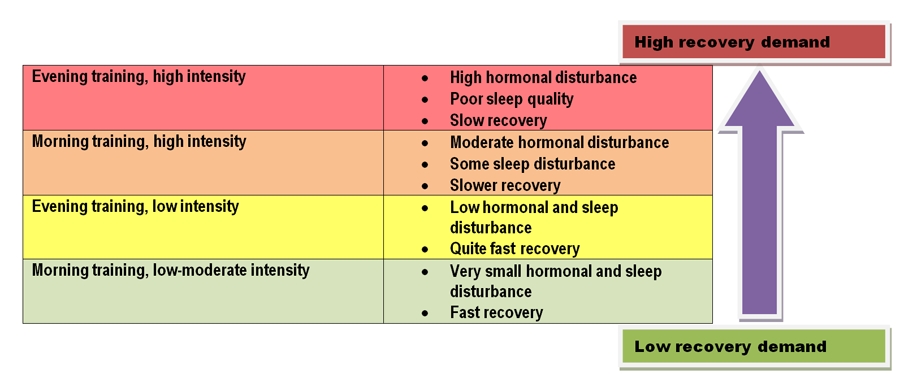
As you can see, the highest demands of recovery are when intense/prolonged training is carried out later in the day, while the lowest demands occur when training is easy-moderate and takes place in the morning. Evening training at low intensity and morning training at high intensity make modest demands, with training intensity having more of an impact.
You can use this information when structuring your overall training programme. For example, in the period approaching an important event, any intense training should be performed as early in the day as possible. And when the day draws really close (less than a week away), you should try to ensure any training is of low intensity and carried out early in the day.
Another example would be when recovering during the week or two after a hard race/event, or perhaps following illness. Easy sessions performed early in the day would demand less recovery resources and allow for better overall recovery. Of course, sometimes evening training is the only feasible option and this will sometimes need to include more intense sessions. If possible, athletes should schedule these intense sessions as early in the evening as possible and be aware that subsequent sleep quality may be reduced, leading to fatigue the next day. In that case, the following day’s training should be easy to allow further recovery.
Summary
Training timing is just one of many factors that should be taken into consideration when planning your next few training sessions. As we have seen in other Sports Performance Bulletin articles (see links below), other factors are also important in determining how well you recover. These include the quality of your nutrition and hydration, our sleep quality (see below), the demands placed upon you at work and how well you are able to switch off at home from the daily stresses and strains of life. However, while manipulating workout timing isn’t a total solution, understanding how it impacts your sleep patterns and potential recovery makes it another useful strategy in your toolkit as you strive for optimum performance!Other practical suggestions for improving sleep quality (and getting to sleep!)
- Minimise or avoid caffeine and alcohol use, especially in the evening.
- Don't eat large meals before retiring; avoid spicy or fatty foods such as cheese, as these take longer to digest.
- Make sure your bed is comfortable; experiment with mattresses and pillows to increase sleeping comfort.
- Keep your bedroom well ventilated, quiet and cool (but not cold).
- Go to bed when you're sleepy-tired, not when it's time to go to bed by habit.
- Regardless of the time you retire, stick to the same routine, which helps the brain to enter its ‘bedtime mode’.
- Related to the above, take the time to wind down before bedtime. Don't get involved in any kind of anxiety provoking activities or thoughts in the 90 minutes before bedtime.
- Avoid using a computer, tablet or mobile phone for at least an hour before retiring; the blue wavelengths of light from these screens can suppress the secretion of the sleep hormone melatonin, making you feel alert just you don’t want to!
- Sleep alone if the activity of your partner (eg snoring, turning over, sleep talking) disturbs you.
- Minimise your evening training sessions.
References
- Biol Rhythm Res. 2009;40(1):45–52
- Eur J Sport Sci. 2008;8(2):119–126.29–31
- Annu Rev Med. 1976;27:225–243
- J Sports Sci. 2012;30(1):S75–S84
- Scand J Med Sci Sports. 2011;21(2):157–169
- Physiol Behav. 2013;116:8–12
- Medical Hypotheses. 2011;77(2):220–222
- Med Sci Sports Exerc. 2013;45: 2243–2253
- Eur J Appl Physiol. 2009;107: 155–161
- US Army Med Dep J. 2013; 98–108
- Med Sci Sports Exerc. 2011;43: 1301–1311
- Med Hypotheses. 2011;77: 220–222
- Sci Transl Med. 2012;4: 129ra43
- Sleep Medicine 2014. 15(7), 755-761
- Zhonghua Yu Fang Yi Xue Za Zhi. 2013 Jun;47(6):542-6
- Physiol Behav. 2019 Jan 1;198:134-139
You need to be logged in to continue reading.
Please register for limited access or take a 30-day risk-free trial of Sports Performance Bulletin to experience the full benefits of a subscription. TAKE A RISK-FREE TRIAL
TAKE A RISK-FREE TRIAL
Newsletter Sign Up
Testimonials
Dr. Alexandra Fandetti-Robin, Back & Body Chiropractic
Elspeth Cowell MSCh DpodM SRCh HCPC reg
William Hunter, Nuffield Health
Further reading
Newsletter Sign Up
Coaches Testimonials
Dr. Alexandra Fandetti-Robin, Back & Body Chiropractic
Elspeth Cowell MSCh DpodM SRCh HCPC reg
William Hunter, Nuffield Health
Keep up with latest sports science research and apply it to maximize performance
Today you have the chance to join a group of athletes, and sports coaches/trainers who all have something special in common...
They use the latest research to improve performance for themselves and their clients - both athletes and sports teams - with help from global specialists in the fields of sports science, sports medicine and sports psychology.
They do this by reading Sports Performance Bulletin, an easy-to-digest but serious-minded journal dedicated to high performance sports. SPB offers a wealth of information and insight into the latest research, in an easily-accessible and understood format, along with a wealth of practical recommendations.
*includes 3 coaching manuals
Get Inspired
All the latest techniques and approaches
Sports Performance Bulletin helps dedicated endurance athletes improve their performance. Sense-checking the latest sports science research, and sourcing evidence and case studies to support findings, Sports Performance Bulletin turns proven insights into easily digestible practical advice. Supporting athletes, coaches and professionals who wish to ensure their guidance and programmes are kept right up to date and based on credible science.


